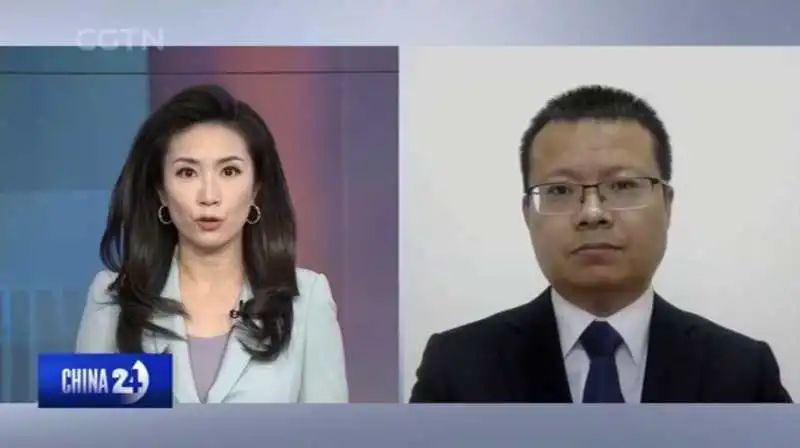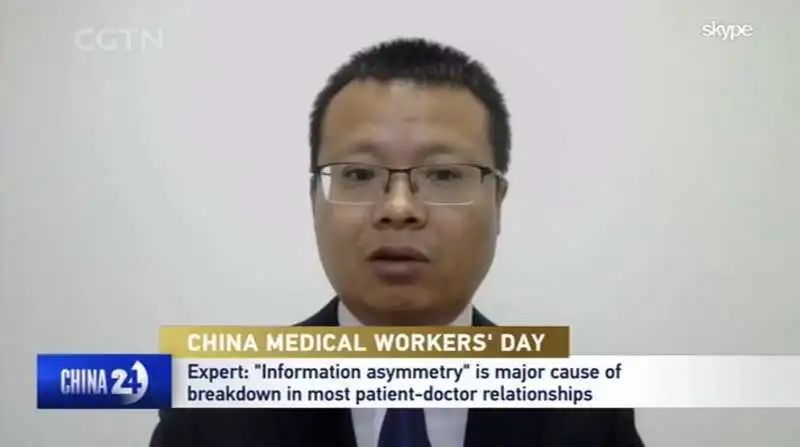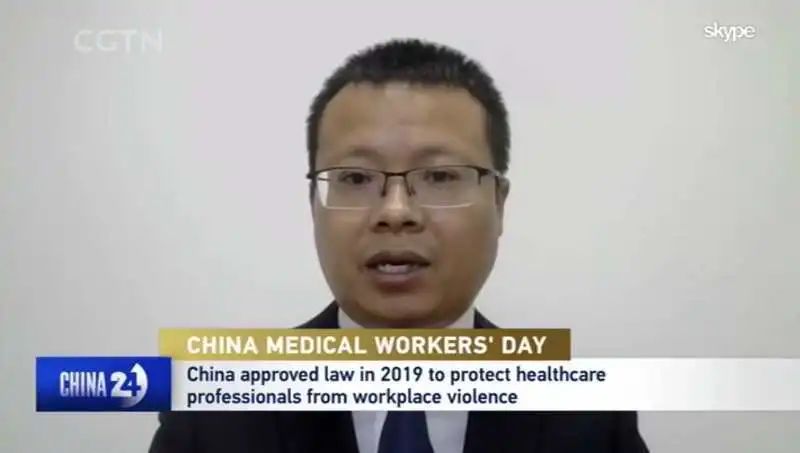上海交大赵大海关于新冠疫情第48次在电视台访谈评论:全社会尊医重卫和防控暴力伤医
上海交通大学国际与公共事务学院博士生导师、上海交通大学-耶鲁大学卫生政策联合研究中心执行主任赵大海,对于新冠肺炎疫情暴发、防控以及医疗卫生体制改革第30次在中央电视台进行直播评论,也是第48次在央视、上视进行访谈评论。在2020年8月19日中国医师节,赵大海在中央电视台英语频道《中国24小时》节目,就暴力伤医的原因和防控等话题进行了直播评论。现将访谈内容翻译并摘录如下。
主持人:《柳叶刀》医学杂志发表了一些关于中国暴力伤医的论文。这似乎仍然是一个值得关注的话题。去年北京杨文医生被刺事件引发了全民愤慨。而一个月后,我们又看到了一位眼科医生遭遇了类似事件。这一切背后有什么原因?
赵大海:首先,与其他工作场所相比,医院的医务人员更容易受到所服务对象的暴力攻击。事实上,除了中国之外,暴力伤医广泛发生在包括美国、英国等的世界上绝大多数国家。基于暴力攻击的理论,在医院的患者及其家属比其他工作场所的服务对象感到沮丧或绝望的可能性更大;而人感到沮丧与攻击他人的概率是呈正相关的。其次,患者和医务人员之间的信息不对称可能是另一个原因。考虑到医学知识的专业性,公众和病人很难理解诊断和治疗的信息。由于公立医院以市场为导向的运作机制,患者往往认为医务人员不会将病人的利益放在首位。公众和患者对医务人员的信任度较低。第三,在中国,暴力伤医的代价不高。大多数暴力伤医的案件都被视为普通的治安纠纷案件予以处理。暴力伤医在中国的惩罚力度比大多数发达国家轻得多。

主持人:杨文医生的遇害为保护中国医务人员免受工作场所暴力的法律铺平了道路。但《柳叶刀》杂志说,单靠法律手段是不够的。帮助保护医务人员的其他方法是什么?
赵大海:除了法律手段之外,我认为至少两个预防机制是不可或缺的。第一,全社会需要形成尊重医务人员的广泛共识。各级政府可以采用在新冠肺炎疫情期间医务人员表现出的无私和勇敢作为案例让公众了解医务工作者。另外,今天的中国医师节更是帮助全社会公众理解医疗卫生行业的好机会。如果全社会公众信任医务人员,那么暴力伤医就一定会逐渐消失。第二,提高患者满意度必须是评价任何医院的一个重要指标。大多数暴力伤医的案件都是源于简单的医患纠纷或误解。如果医院有一个公平、科学的医患纠纷解决机制,大多数暴力伤医事件都不会发生。因此,相关政府部门可以考虑帮助所有医院建立起一个科学和统一的医患纠纷解决制度。
供稿者:国务学院
日期:2020年8月20日
Dahai Zhao' 48th comments on TV during the Pandemic: Respecting Medical Workers and Preventing Violence against Medical Workers
Dahai Zhao, a doctoral supervisor at School of International and Public Affairs of Shanghai Jiao Tong University and Executive Director of Shanghai Jiao Tong University-Yale University Joint Research Center for Health Policy, has been interviewed by CGTN for the 30th time (the 48th time by CGTN / ShanghaiTV) since the COVID-19 pandemic. On August 19, 2020, Zhao commented on respecting medical workers and preventing violence against medical workers on “China 24” of CGTN.
Anchor: The Lancet medical journal has published some articles on workplace violence against healthcare professionals in China which seems to be still be a cause for concern. Last year's stabbing of Doctor Yang Wen in Beijing triggered widespread public anger. We saw a similar incident a month later of an ophthalmologist. What are some reasons behind all this?
Zhao: First, compared with other workplaces, healthcare workers at hospitals are much easier to be attacked by the service users. Actually, besides of China, violence against health workers is also a very serious issue in most countries in the world such as the US. According to the violence theory, patients and their family members are much more likely to be frustrated or desperate than other workplace service users. Further, being frustrated is positively associated with the probability of attacking others. Second, the information asymmetry between patients and healthcare professionals may be another cause. Considering the professional medical knowledge, it is very difficult for the public or patients to know the diagnosis and treatment. Due to the fact that the market-oriented operation of public hospitals, patients often believe healthcare professionals care more about themselves than the patient. The public and patient have a low level of trust in healthcare professionals. Third, the cost of violence against healthcare professionals in China is not very high. It means most cases of violence against healthcare workers are regarded as the common disputes of residents. The punishment in China is much lighter than most developed countries.
Anchor: The death of Doctor Yang Wen paved the way to law aimed at protecting Chinese healthcare professionals from workplace violence. But the Lancet says a legal approach alone is not enough. What are other ways to help protect medical workers?
Zhao: Besides of the legal approach, I think at least two preventative mechanisms are indispensable. First, the society needs to have a consensus that medical workers must be respected. The government can use the unselfish and brave examples of the medical workers from combating COVID-19, to make the public understand the medical worker. As another example, Doctor’s Day today is a good chance to help the society understand the health care industry. If the public trusts healthcare workers, the violence against healthcare workers wears off. Second, to improve the patient satisfaction must be one important indicator of evaluating any hospital. Most cases of violence against healthcare workers are from simple disputes or misunderstandings. If the hospital had a fair and scientific mechanism to solve the dispute, most violence cases would not have occurred. Therefore, the government may consider helping to build a scientific and uniform physician-patient dispute resolution system for all hospitals.
Contributor: SIPA, SJTU
Data: August 20

